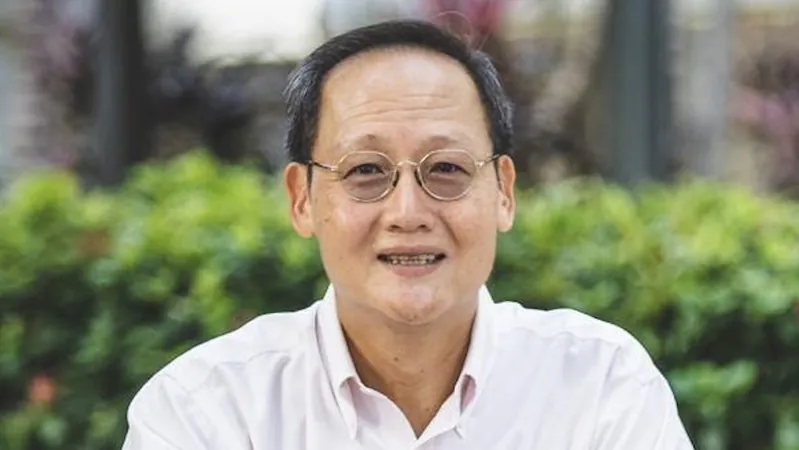
Singapore's Job Security Dilemma: Manpower Minister Tan See Leng Addresses Fears Over Foreign Talent
2025-01-24
Author: Siti
Singapore's Job Security Dilemma: Manpower Minister Tan See Leng Addresses Fears Over Foreign Talent
SINGAPORE: In a recent interview with CNA938, Manpower Minister Tan See Leng tackled a pressing concern among Singaporeans: the fear of losing jobs, particularly in the PMET (professionals, managers, executives, and technicians) sector, to foreign talent.
During the discussion, host Daniel Martin posed the question: “Are you concerned about losing your job to foreign talent?” Dr. Tan responded by expressing his understanding and empathy towards those who harbor such fears, noting that many individuals have reached out to him regarding job security.
To put these fears into perspective, Dr. Tan cited data about local PMET job growth. Between 2013 and 2023, Singapore created 380,000 local PMET positions, while the number of work pass holders, particularly E and S pass holders who earn higher salaries, increased by just 38,000. This translates to a ratio of 10 local PMET jobs for every foreigner in similar roles, a statistic that Dr. Tan used to reassure listeners that local opportunities are being created at a much larger scale.
The minister emphasized that this trend is evident in high-growth sectors such as finance and ICT (Information and Communication Technology) as well, where 170,000 jobs were generated for locals against just 17,000 allocated to foreign professionals.
“I know the fear is there,” Dr. Tan remarked, reassuring Singaporeans that while apprehension is understandable, it's important to recognize the robust safeguards in place to protect local jobs.
When asked about the origins of this perception, Dr. Tan highlighted several contributing factors. He pointed to the rapid societal changes, political disruptions that generate tensions, and an uptick in xenophobic sentiments on social media that collectively amplify these concerns.
The swift pace of Singapore's economic development can be unsettling for many citizens. “We are a global economy, interconnected and open,” he explained. “When other countries innovate rapidly, we must adapt or risk falling behind.”
Dr. Tan further noted that certain local skill sets are still in development, necessitating the hiring of foreign professionals in specific sectors. This approach allows the existing workforce to upskill as Singapore pivots toward future demands.
With an environment of both anxiety and opportunity, the discussion raises crucial questions about future employment and how Singapore can balance local and foreign talent needs amid a dynamic global landscape.
 Brasil (PT)
Brasil (PT)
 Canada (EN)
Canada (EN)
 Chile (ES)
Chile (ES)
 Česko (CS)
Česko (CS)
 대한민국 (KO)
대한민국 (KO)
 España (ES)
España (ES)
 France (FR)
France (FR)
 Hong Kong (EN)
Hong Kong (EN)
 Italia (IT)
Italia (IT)
 日本 (JA)
日本 (JA)
 Magyarország (HU)
Magyarország (HU)
 Norge (NO)
Norge (NO)
 Polska (PL)
Polska (PL)
 Schweiz (DE)
Schweiz (DE)
 Singapore (EN)
Singapore (EN)
 Sverige (SV)
Sverige (SV)
 Suomi (FI)
Suomi (FI)
 Türkiye (TR)
Türkiye (TR)